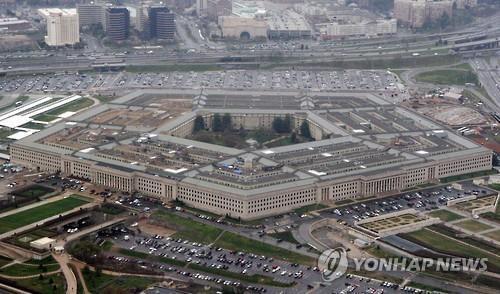Pentagon: US believes Korea won't reverse THAAD deployment
By a2017001Published : June 8, 2017 - 09:38
WASHINGTON -- The United States believes South Korean won't reverse the decision to host the THAAD missile defense system, the Pentagon said Wednesday after Seoul suspended the deployment pending an environmental assessment.
Seoul's presidential office, Cheong Wa Dae, said earlier in the day that deployment of four launchers for the THAAD battery should wait until the environmental study is over, though two, already-deployed launchers won't be withdrawn.
The US could see the suspension as a setback to its efforts to fully deploy the system as soon as possible, while China could welcome the decision as it has railed strongly against the system, which it claims hurts its security interests.

"The US trusts the ROK official stance that the THAAD deployment was an Alliance decision and it will not be reversed. We will continue to work closely with the ROK Government throughout this process," Cmdr. Gary Ross, a Pentagon spokesman, told Yonhap News Agency.
"We have worked closely and have been fully transparent with the ROK government throughout this process. US Forces Korea confirmed in May 2017 that the Terminal High Altitude Area Defense system is operational and has the ability to intercept North Korean missiles and defend the Republic of Korea," he said.
During a Senate Appropriations subcommittee hearing, Acting Secretary of the Army Robert Speer said that the deployment of additional THAAD launchers will be delayed to watch an environmental assessment.
"We'll go through those things that's required to meet the needs of Korea," he said.
Army Chief of Staff Gen. Mark Milley said the US will "work through the issue."
"The THAAD is essential to protect US forces in Korea, but also South Korea as a whole and US forces in Korea are there in order to protect the entire country. So we'll work through that," Milley said, adding that he's confident US Forces Korea Commander Gen. Vincent Brooks and his staff "will work through that with the government of South Korea."
The State Department said it hopes to continue close cooperation with South Korea's new government.
"I'd have to refer you to the ROK regarding their assessment," a spokesperson for the department's East Asia and Pacific Affairs Bureau said of the South's decision to have an environmental assessment of the THAAD deployment.
"The United States and South Korea have worked closely together on Alliance issues and we look forward to continuing our close coordination with the Moon administration," the official said.
The THAAD unit in South Korea reached its initial operational capability in late April after the US brought in two launchers in early March. Four additional launchers have since arrived in South Korea to add to the system for full deployment aimed at intercepting North Korean missile attacks.
The arrival of the four additional launchers emerged as a top political issue in South Korea following revelations the Defense Ministry deliberately omitted the fact in a report to the office of new President Moon Jae-in
That raised allegations of a cover-up, with Moon expressing frustration and ordering a probe into how the omission happened. The probe determined that a senior Defense Ministry official ordered the deletion of the four launchers' arrival from the report to the presidential office.
The THAAD deployment has become more unpopular in South Korea as the public raised questions about decisions made by former President Park Geun-hye, who was impeached and then ultimately ousted from office on corruption charges. It was when Park was in office that Seoul decided to host the system.
Her successor, Moon, has also been critical of the decision, saying it was made without due process to collect public opinion.
US President Donald Trump fueled opposition to THAAD among the South Korean public by demanding Seoul pay for the $1 billion system. The demand runs counter to a deployment agreement under which the US agreed to pay for the system if the South agreed to host it and provide land. (Yonhap)


![[Exclusive] Korean military set to ban iPhones over 'security' concerns](http://res.heraldm.com/phpwas/restmb_idxmake.php?idx=644&simg=/content/image/2024/04/23/20240423050599_0.jpg&u=20240423183955)




![[Herald Interview] 'Amid aging population, Korea to invite more young professionals from overseas'](http://res.heraldm.com/phpwas/restmb_idxmake.php?idx=644&simg=/content/image/2024/04/24/20240424050844_0.jpg&u=20240424200058)

![[Pressure points] Leggings in public: Fashion statement or social faux pas?](http://res.heraldm.com/phpwas/restmb_idxmake.php?idx=644&simg=/content/image/2024/04/23/20240423050669_0.jpg&u=)








